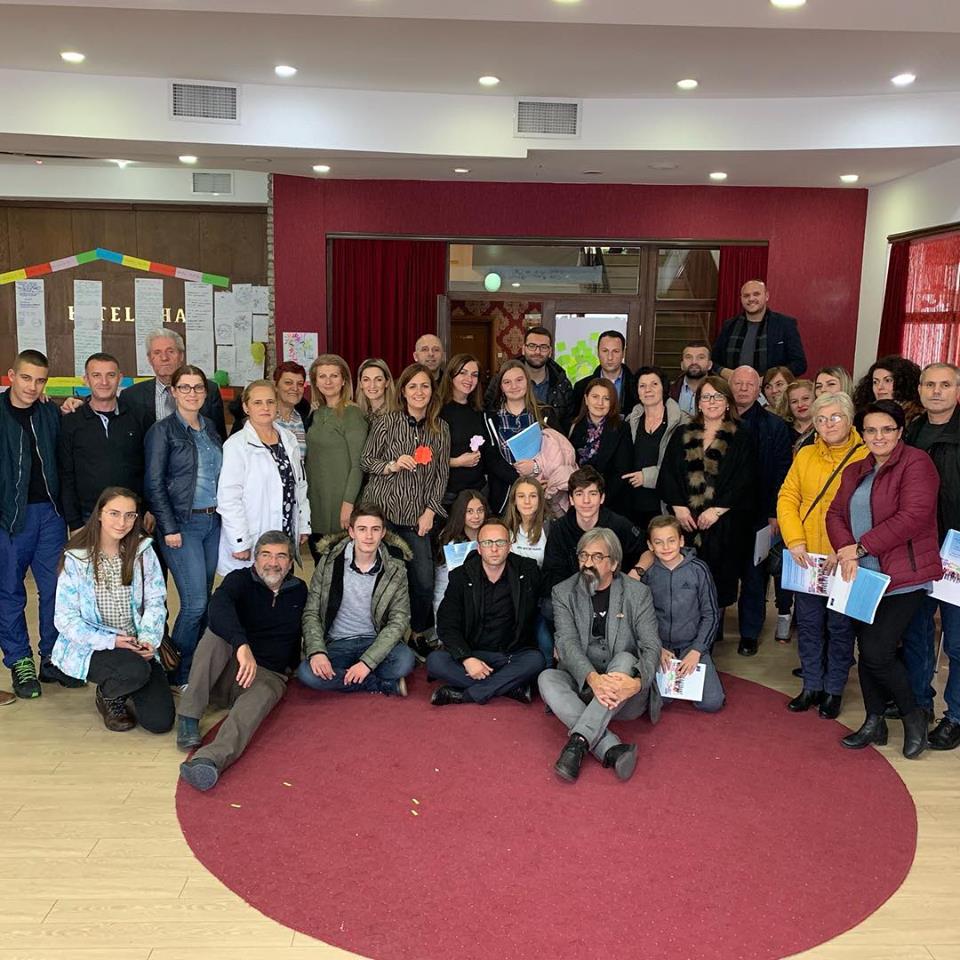As part of the Council of Europe’s project “Fostering rapprochement through education for democracy and language learning (FRED)” ten school teams in Kosovo* have received initial project organisation training.
The four-day (23 - 27 November) training in Prevallë/Prevalac focused on how to set up and organise school-based projects to promote positive image of plurilingualism and language learning.
Some forty participants – school heads, teachers and representatives of parents and students - had an opportunity to explore all dimensions of such projects: democratic co-operation, plurilingual and pluricultural identity, living together, language awareness, dealing with controversial issues and all forms of communication and project management.
The participants were particularly interested in the part of the training devoted to project management and design, during which they could learn how to manage, plan and organise projects, as well as how to communicate and raise visibility of their work. After project ideas were identified and exchanged, they were further enriched through discussions.
The participating teams are composed of key protagonists in day-to-day education and the general impression is that the contribution of student representatives was particularly constructive.
They are now expected to formulate action plans and start preparing projects which they will implement in spring and summer 2019. They will be supported all the way through by their trainers and coaches, both on and off-line. In early March next year the teams will reconvene to finalise project plans, so that their implementation can start from April onwards.
Study on linguistic and cultural perceptions of young people
The Council of Europe’s project “Fostering rapprochement through education for democracy and language learning (FRED)” also includes a survey on how young people perceive languages and their speakers.
In the past two months, a team in charge of the project accompanied by a group of experts visited pilot schools to collect data by using an online questionnaire, which had been developed prior to the visit.
Based on a representative sample of nearly 500 pupils and more than 200 teachers, the study is expected to offer a clearer and evidence-based picture of linguistic and cultural perceptions of younger generations and of their teachers. It should also identify the best ways to promote plurilingualism.
The poll will be repeated after the schools have designed and implemented their projects to promote plurilingualism to show whether and to what extent the participation in the projects has changed the participants’ linguistic and cultural perceptions.
In addition to the projects, this study should help develop guidelines and offer practical examples to all schools that wish to promote a positive image of local and regional plurilingualism and language learning.
Both activities are part of the Council of Europe project “Fostering rapprochement through education for democracy and language learning (FRED)” co-funded by Norway and implemented by the Council of Europe.
* All reference to Kosovo, whether to the territory, institutions or population, shall be understood in full compliance with United Nations Security Council Resolution 1244 (1999) and without prejudice to the status of Kosovo.




